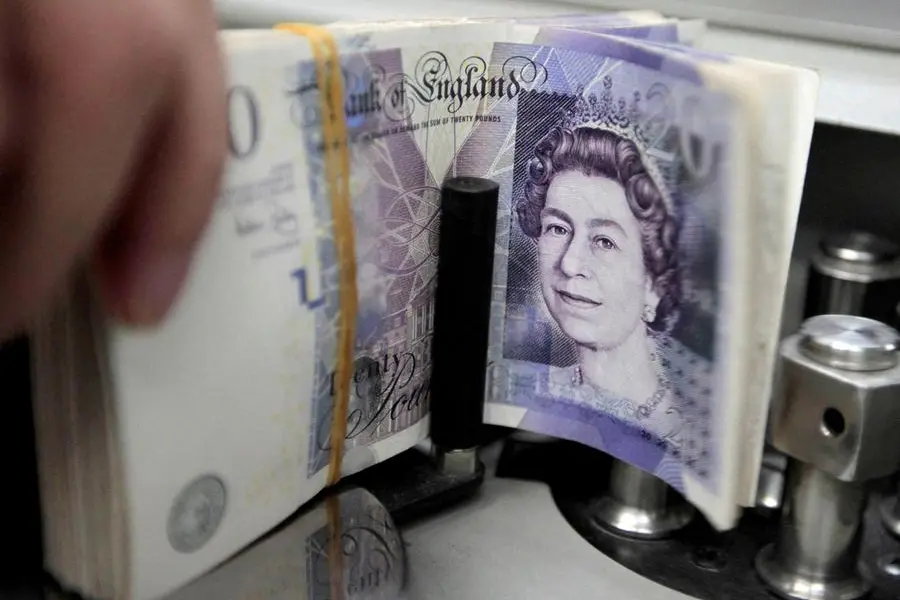PHOTO
Sterling headed for its best week since the end of 2020 on Friday, amid moves by British policymakers to undo some of the market damage caused by last week's tax-slashing, debt-swelling fiscal plan.
The UK currency rose to a fresh one-week high at $1.1222 early in the Asian session, taking it very close to erasing all of the precipitous losses in the aftermath of the new government's so-called mini budget last Friday.
However, the currency pair - also known as cable - slipped later in the session to be 0.17% lower than Thursday at $1.1100.
That still left sterling on course for a 2.26% gain for the week, despite plumbing a record low of $1.0327 on Monday.
"The recovery in cable is very eye-catching," said Sean Callow, a strategist at Westpac in Sydney.
"It makes some sense in that UK yields are set to be high for some time, discouraging short positions. But with the UK already running very large current account deficits, we doubt there is much more upside in sterling."
Overnight, the British pound jumped 2.13% as the Bank of England (BoE) conducted a second day of bond buying to stabilise markets, sending gilt yields higher.
Meanwhile, British Prime Minister Liz Truss and finance minister Kwasi Kwarteng will meet the head of the country's independent fiscal watchdog, the Office for Budget Responsibility (OBR), on Friday to discuss the budget forecast process.
Truss vowed to stick with the controversial plans on Thursday, in her first comments since the turmoil erupted in markets.
The OBR's involvement is "alleviating fears within the markets of the so-far uncosted fiscal package, helping support GBP," said Tapas Strickland, head of market economics at National Australia Bank.
"A hot German CPI print also serves as a reminder of the inflation situation in Europe - and globally - and that central banks need to remain hawkish. In such a light, the BoE's decision on Wednesday to purchase bonds should not be read as a pivot," Strickland added.
Data on Thursday showed German inflation at its highest in more than a quarter of a century, driven by high energy prices, with analysts warning that the energy crisis has yet to make itself fully felt.
The reading suggests the figure for the wider 19-country euro zone, due on Friday, is also likely to exceed economists' forecasts.
Markets are fully priced for another 75 basis point hike by the ECB next month, with 1-in-3 odds for a full percentage point bump.
For the BoE, traders predict 125 basis points of tightening in early November, with small odds for a 150 basis-point increase.
(Reporting by Kevin Buckland)





















